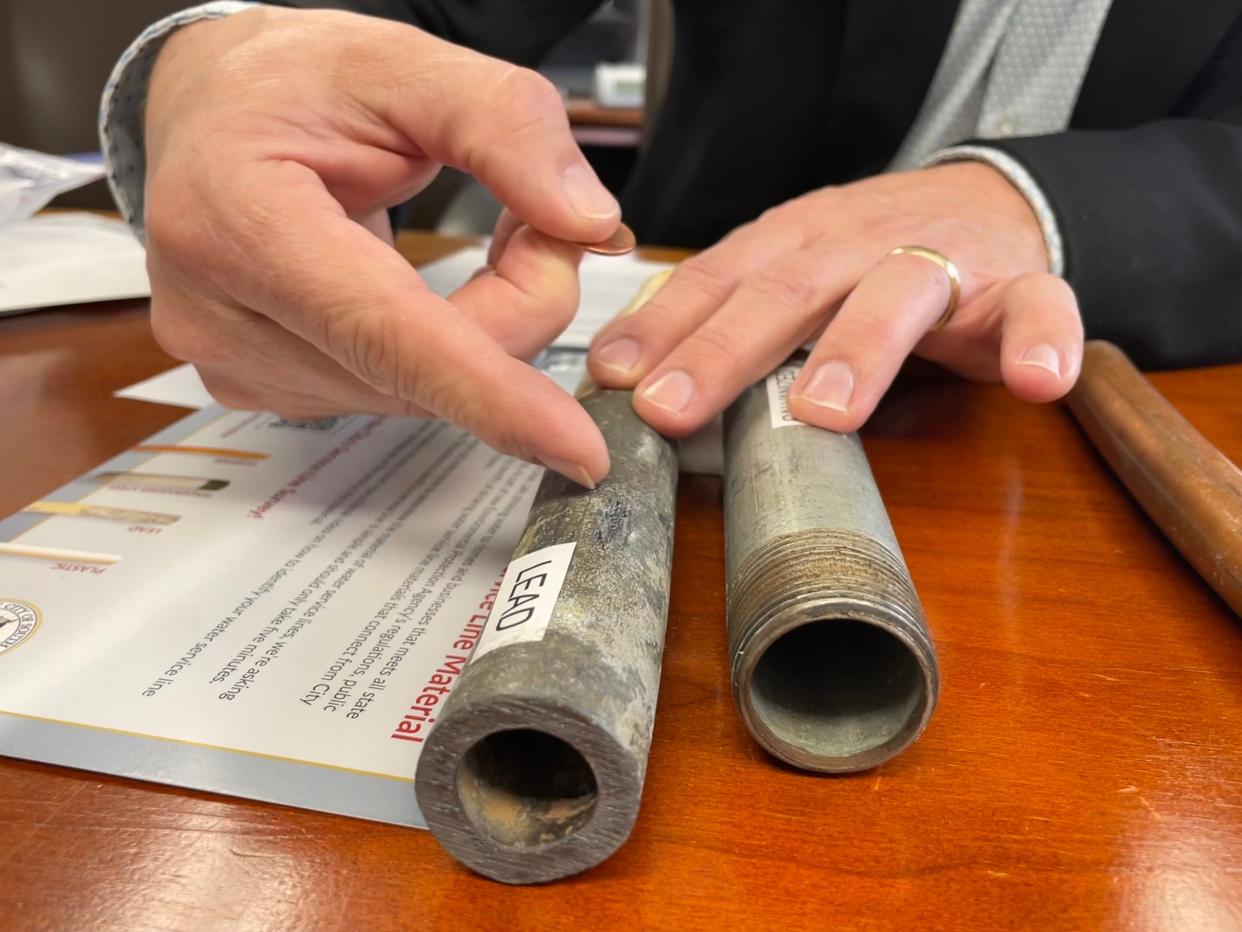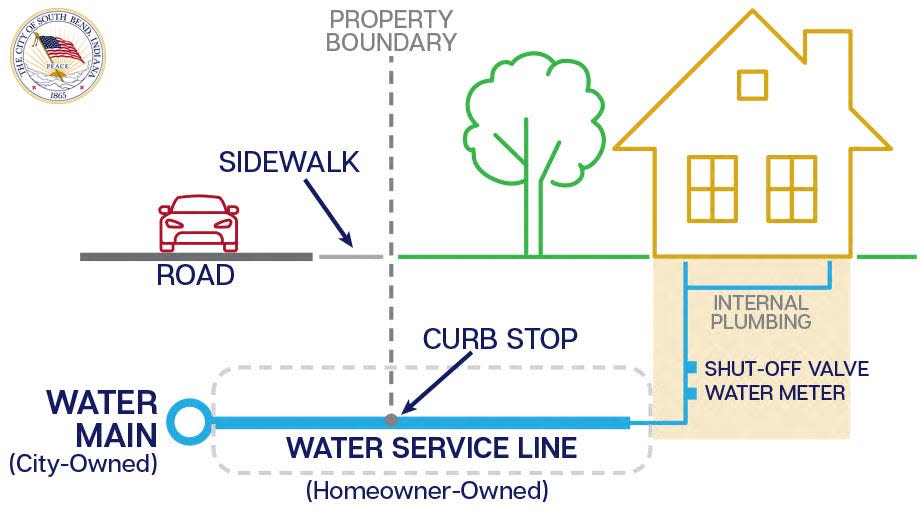Seeking to build inventory of lead water lines, South Bend leaders need your help

SOUTH BEND — To comply with new federal regulations, South Bend officials are asking homeowners and business owners to test whether their water service lines are made of lead or some other material.
All you need to find out is a penny and a magnet.
The city has sent postcards with step-by-step instructions to more than 34,000 municipal utilities customers whose properties were likely built before 1986, when the Safe Drinking Water Act banned the use of lead in plumbing systems for drinking water. By doing a quick scratch test and survey, residents can learn whether they or their children are at risk of ingesting the potentially toxic metal.
Lead is commonly found in the paint or building materials of old homes and can be particularly harmful when ingested by children. In children under age 7, whose brains are rapidly growing, consuming the metal is linked to learning disabilities and decreased muscle and bone growth.
Lead awareness: St. Joseph County struggles to boost lead testing, even as it adds resources
The city delivers nearly 5.5 billion gallons of safe drinking water to customers each year, according to Department of Public Works data. Testing in 2022 showed that the amount of lead and copper found in South Bend's water supply is well below the Environmental Protection Agency's limits.
But if a customer's service line or plumbing is made of lead, corrosion of the pipes could leach chemicals into drinking water undetected. While a central pipe called the water main is owned by the city, water service lines that feed homes and businesses are privately owned in South Bend.

South Bend's "hard water," high in dissolved minerals, prevents some of this leaching by coating the surface of pipes, according to Public Works Director Eric Horvath. But he expects many homes contain lead service lines.
The city must report results to the EPA by October 2024. Fewer than 1,000 responses have been received so far, Horvath said.
Test for lead with a penny and a magnet
The following steps are part of a five-minute survey residents can find at southbendin.gov/serviceline. There's also a video walking you through each step. Call the city at 311 if you need help.
Find your service line: Water service lines are typically in the basement. The line will be near your water meter and feed into the valve that shuts off your building's water.
Grab your penny and magnet: The service line will be made of one of four materials: lead, copper, galvanized steel or plastic. Scratch the pipe with a coin and attempt to stick a magnet to it.
Determine what material your service line is made of: If the line is made of copper, the pipe's color will resemble a penny after a scratch test and the magnet won't stick. If the line is made of steel, it will appear dull gray and the magnet will stick. A lead pipe will appear shiny gray and the magnet won't stick. A plastic pipe will likely be white, black or blue and won't attract the magnet.
Take a photo: Send the city a photo of the water service line entering your property by visiting southbendin.gov/serviceline. You can also send your results, along with your address and a photo of the pipe, via email to waterquality@southbendin.gov.
Get a free test of your drinking water
The city offers free testing kits to South Bend residents worried that lead and copper may be in their drinking water. The free tests target homes built before 1986.
"If you're in a house that is built before '86 and you have a young kid or children," Horvath said, "you should be getting (your water) tested. That's why we do the free tests."
Samples should be collected from the cold-water kitchen faucet when the water hasn't been used for at least six hours but has been used within the last 24 hours.
Residents can request their free lead and copper sampling kit by calling 311 or emailing waterquality@southbendin.gov.
Email South Bend Tribune city reporter Jordan Smith at JTsmith@gannett.com. Follow him on X: @jordantsmith09
This article originally appeared on South Bend Tribune: How to test whether your home's water service line contains lead pipes

